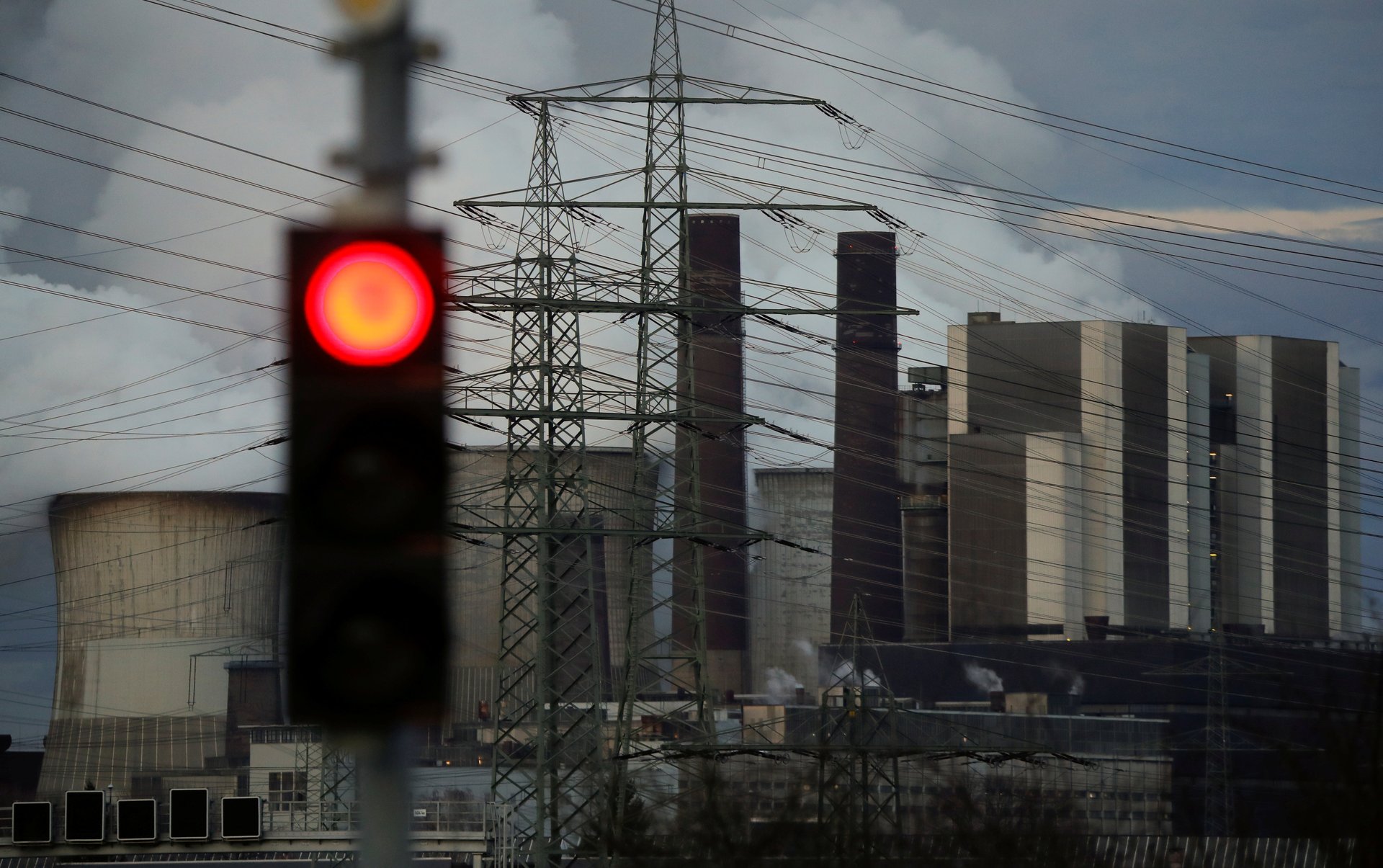Germany blames a roaring economy and migrants for missing its 2020 climate goals
Germany, often held up as an example of how to go green, has said it’s not going to hit its 2020 emissions-reduction goals. The government is putting the blame on its blistering economic growth and increase in vehicles.


Germany, often held up as an example of how to go green, has said it’s not going to hit its 2020 emissions-reduction goals. The government is putting the blame on its blistering economic growth and increase in vehicles.
A government report (pdf in German) released today (June 13) says that the country will fail to meet its self-imposed target of a 40% reduction in greenhouse gases by 2020, and will hit only a 32% reduction at best.
As well as “surprisingly strong economic growth,” the report cites “surprisingly strong population growth” for causing an increase in energy consumption. The country has taken in around a million migrants in the last few years.
Chancellor Angela Merkel’s conservatives and their coalition partners the Social Democrats agreed during the negotiations in spring that the country would not hit the 2020 targets. A September 2017 report (link in German) from the Agora Energiewende also said that Germany had no hope of reducing greenhouse-gas emissions by 40% of its 1990 levels by 2020.
Germany, as part of its ambitious plan for a transition to clean energy (“Energiewende”) has invested heavily in renewables. And it has also been closing nuclear power plants at a clip since 2011, leaving it still pretty reliant on coal and lignite plants. In 2015, more than 40% of Germany’s electricity production came from those sources—making it the biggest greenhouse gas producer in the EU. Last week, Berlin appointed a commission to try and speed up the coal exit.
The WWF Germany environmental group called the new report evidence of the gap between what the government says and what it does on climate goals: “The climate protection report is a 120-decibel alarm signal.”
The Organisation for Economic Co-operation and Development (OECD) this week prodded Berlin to try harder to meet short-term targets. In its “Economic Survey of Germany,” it criticized the transport sector’s lack of a clear environmental policy and said the government should honor it goal of phasing out coal, which would help it hit 2020 targets.